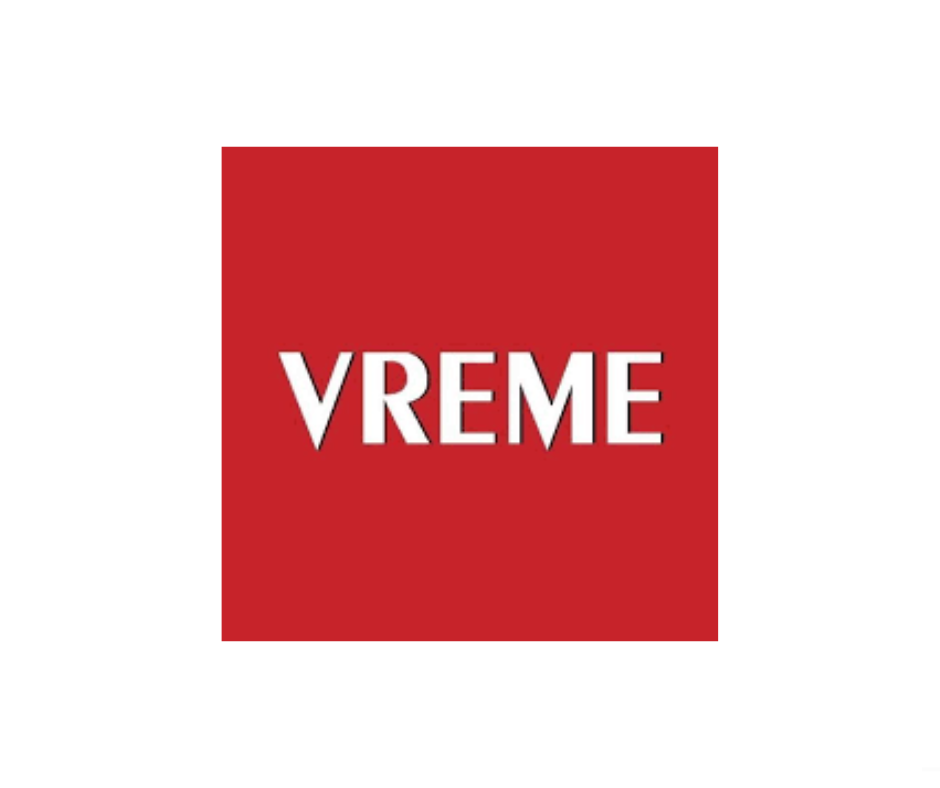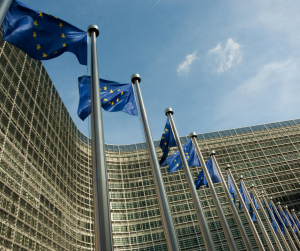“Vreme”, even at the cost of its own damage, remains faithful to the ideals for which it was founded, says “Vreme” director Stevan Ristić. On the occasion of the 35th birthday, we talked about the financial strangulation of the media and the future
Editor-in-Chief of “Vremena” for several decades Dragoljub Zarkovic liked to say that the situation in “Vreme” is “bad, but stable, with an emphasis on stable”. It was necessary to financially survive all regimes, from the nineties to today.
That’s what he’s talking about. Stevan Ristic, director of “Time” and artist of the possible, who is best versed in the alchemy of survival. He is a man with whom there is never euphoria or catastrophic mood in this regard, and that is why he is a grateful interlocutor.
Stevan, what is the situation now?
Still stable. “Time” has no greater debts than those to ourselves. Late salaries, always late. They are still modest. It is difficult, but there is no danger that someone will issue a bill and shut us down. That’s how we’ve been going for more or less 35 years.
The first financial crisis occurred less than four months after its establishment, in February 1991. Even the printing press could not be paid then, but we were saved by the great demonstrations on March 9. “Vreme” did not appear on sale at first, but the editors decided to continue and then they started with a small campaign on Radio B92 – “Vreme is late for a reason”. Money was found, the printing house was changed, so the paper arrived with a delay.
But the circulation sold well?
Yes. I still have a copy of “Borba” from March 10, 1991. All the newspapers that covered the protests at that time sold well. But that also meant entering the audience, since “Vreme” was new. Previously, they did not care about marketing and campaigning.
The team of founders, from all over the old Yugoslavia, believed that it was enough that they were good journalists and that they fought to start the first private weekly in Yugoslavia at the time. But the audience does not have to come alone. Political friction did not allow “Vreme” to be sold much outside of Serbia, and it remained mostly a Belgrade weekly.
And why are all 35 years “stable bad”?
The newspaper was founded on enthusiasm, with the mission to write professionally and with quality. But business was not thought of. One of the founders who came from the business sphere retired in March 1991 and distributed his ownership share to journalists. He realized that there is no big business there, even though the newspapers are of high quality. Vreme was founded without an ad sales department, for example.
What does a healthy mix of earnings look like for this type of press – sales, marketing and something else?
In the last fifteen years, everything has changed. There is no healthy mix because the market has been in crisis since 2008 and the world economic crisis. Before that, we had a golden period of advertising for a few years – the market was still in its infancy, but large companies, telecommunications, banks, car distributors came to us, Serbia became part of the world. “Time” had a good share of the cake. In 2008, we had two-thirds of our income from advertising.
But then the business takes a back seat – the marketing budget is always cut first. Very quickly then, we switched to organizing business conferences, so that was the third leg in income. That kept us above water until 2013, after the change of government. “Vreme” was suddenly left without six advertising contracts, honest contracts for which we went to tender.
Why have the ads disappeared?
Because at that time, the new progressive group considered “Vreme” as a threat and decided to take the bread off our table. In 2013, we paid people only seven monthly salaries, and the following year barely eight. But hardly anyone left “Vreme”, even though it was impossible to live on those irregular and small salaries. Well, again, people did the best they could.
Then the First Deputy Prime Minister Aleksandar Vučić directly said that “Vreme” was supposedly a “tycoon’s weekly”. Did it have an impact on advertisers?
For sure. Vučić then presented himself as Elliot Ness, who fights against injustice, corruption and dishonest rich people. When he says that “Vreme” is a tycoon’s weekly, then shows copies of our paper at conferences and calls us names, it was a clear message to advertisers that “Vreme” is not the right place for their advertising message. And later we found out that from the top of the government they did not hesitate to call big companies and ask them if they support the fight against the first man of the party and if they support corruption by advertising.
From the human side, I can understand that – when ten people call you, at one point you say let’s redirect the ads to these media that the first person in the country says are correct.
Let’s demystify the mention of “Time” with businessman Miroslav Mišković. It has to do with the heavy loan with which “Vreme” bought itself.
Yes, in 2008, “Vreme” decided to buy over 58 percent of the ownership that was in the hands of the family of lawyer Srđa Popović and several other journalists from the first group. To do this, we had to take out a huge loan, and we had nothing to guarantee. So we first had Delta Maxi as a guarantor, and then some other Delta unit. Part of the public therefore thought that “Vreme” had close ties with Mišković, because he had guaranteed loans to his companies.
But Delta didn’t give a dinar?
No, she was just a guarantor of the loan. That loan amounted to two thirds of our annual turnover at the time. We could not get that money without a serious guarantor.
Why didn’t “Vreme”, after the conflict with the founders, decide to reorganize under a different name instead of giving big money to pay off the former owners?
A large number of media publishers have done something like that – they shut down a company in debt and create another one. It came to our mind, but the decisive factors were tradition and the fact that “Vreme”, even at the cost of its own damage, will not look for shortcuts and confuse the audience. Rather, it remains faithful to the ideals for which it was founded.
Where in the financial difficulties of the media is the fact that the audience is less and less willing to pay for the media, that is, they think that everything is for nothing?
I always remember a “Vremena” forum about fifteen years ago when the late Teofil Pančić asked rhetorically where to download burek and jeans. Even then, there was a general agreement that content on the Internet is free, that journalists should write because the public expects it, but that the public is not interested in how journalists will pay the rent and infostation. That hasn’t changed much.
Today, a large number of people in Serbia pay for Netflix and that’s fine with them – they pay, no matter how much they watch. On the other hand, they are quite stingy when they have to pay for content that they are used to free. This requires a deeper analysis of the state of the media, the content… when I meet extended family, I usually don’t tell them that I work in the media because that requires elaboration. So I tell them I’m doing something private.
It seems that one part of the media is condemned to survive, while the other is showered with public money, mainly through Telekom. There is no question of competition, especially “healthy”.
That’s right, the market doesn’t exist. We know people who got rich from the media business and people who make ends meet because they are in the media business. Quality did not determine who is rich and who survives, but the opposite – the lower the quality, the greater the wealth. This could only happen because it is the main program of the party in power.
It happened with the media more than ten years ago, and now it is happening in culture and other branches. The authorities have assessed that we are in a state of war and will not give the enemy even a grain of rice. Now the actors are told – if you want to act in the National Theater, then you will do as we tell you and you have to keep quiet. That’s what the media has done.
Do you have enough imagination to imagine how a medium like “Vremen” can survive another 35 years?
The editor of “The Guardian”, when they decided to open a permanent crowd funding campaign a few years ago, said something that I remember – there will always be space and an audience for exceptional journalism.
I believe in the next 35 years of “Vremen” because we have shown in recent years that we are ready to change, we are launching new digital products that we are trying to monetize, we have a loyal audience that we will expand, we have rejuvenated the team. We have a future.
*The interview was first published in _to the monthly newsletter Redakcija
Source: Vreme




